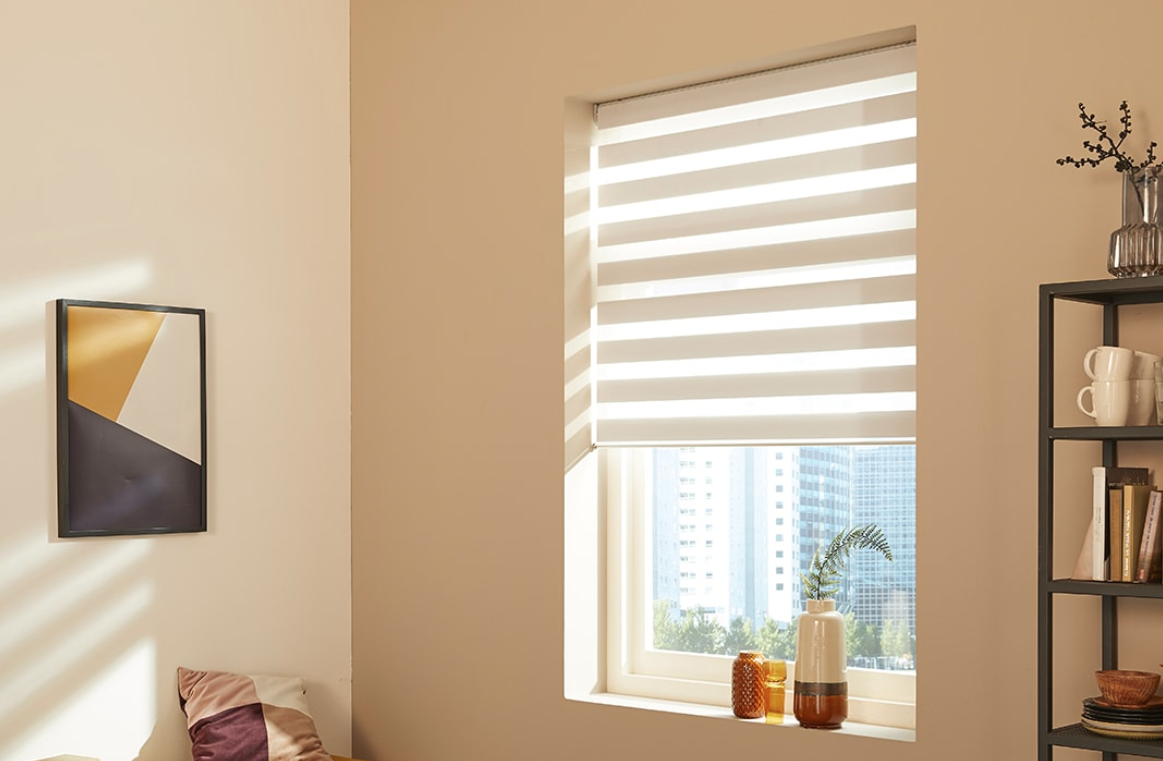Smart Home Shades: Great Idea, If You've Got The Money
Last Updated: August 14, 2018
Wireless motorized window shades and blinds may seem like the stuff of 5-star hotels and the I-have-too-much-money crowd—but peel the curtain back a bit. Wireless window treatments, like smart LED bulbs, can be both a cool labor saving option and an essential home security feature. If a crook casing your castle catches lights going on and off plus window shades rising and lowering, the hope is they'll think someone is home, shifting their attention to what looks like an unoccupied abode.
Wireless shades operate similarly to smart LED bulbs: you can raise or lower them individually or as a group at set times or conditions like sunrise or sunset. Some use a smart app and some a remote control—or both. Fun.
Read More:
- The best technology to help you sleep
- What is Stringify? The home automation app for when IFTTT isn't enough
However, wireless shades and blinds present a substantial economic challenge to the DIY smart home enthusiast, far more than a sub-$20 smart LED bulb. Depending on the size of the window, the style of the shade or blind, and the material, a single window can cost between $350-$500 to cover, at minimum. The average home contains 18 windows, according to lighting company Lutron: So now we're budgeting at least $6,300. As most wireless shades need professional installing (sorry, weekend DIYers) the costs only go up from there.
If you're on a budget (and who honestly, today, isn't) there are inexpensive add-on motorized solutions to your existing blinds. These are not the norm, though. So before dropping significant dough, you'll want to consider your options.
Remember that in choosing between various app control and power options (some operate on batteries, some wired AC or both), you'll want to peruse varying color and style options. Many vendors will helpfully send free swatches to help your realize your wireless interior décor vision.
Here's a rundown of the available wireless shades and blinds options available today, by features—and budgets.
If you need help installing any of these new connected devices, you can visit HomeAdvisor.com to find a local professional.
Pella launched its Insynctive smart shades in January, making this wireless shade entry the newest on our list. What Pella brings to the party is its expertise in windows: the only smart shade supplier with its between-the-glass shades or blinds – its Designer Series – for double-glass windows. (Yes, they also do standard room-sized wireless shades and blinds.)
Through its plug-in Pella Bridge, this shade integrates with a number of existing smart home systems: Wink, Savant, Nexia and most Z-Wave systems. There are also Pella Insynctive products including a garage door, bolt lock, door and window sensors that round out its smart home system. Pella also appeals to the smart energy home owner: It's Designer Series wireless aluminum blinds, along with its cellular shades, are battery-powered, and can be recharged by a thin horizontal solar panel. Pella can't be bought online and must be purchased and installed through its authorized dealers and reps. (Sorry, DIYers.)
If you need help installing any of these new connected devices, you can visit HomeAdvisor.com to find a local professional.
Bali (Powered by Somfy)
Bali makes these shades, while Somfy makes the motors that run the shades. Known for powering industrial and commercial motorized window coverings, Somfy calls itself, "the world's largest manufacturer of tubular motors for interior and exterior window coverings."
Bali, though, is a consumer brand that works both with Somfy's motors and the Somfy myLink app to offer similar smart shade settings as its competitors. Unfortunately, compatibility with other smart home systems is a question mark. Somfy says its motors play well with custom installed smart home ecosystems including Lutron, Crestron, Savant and Control4 (although we could find only this reference to these systems on the Somfy Web site) as well as Zigbee and Z-Wave (which may or may not make them compatible with Wink and other consumer DIY systems), and its own.
You can order Bali swatches from its web site. But you'll have to go to a Bali retailer, which include popular chains such as Costco, Home Depot, Kmart, JCPenny, Lowe's and Sears, to actually buy them. Then, you can install them yourself or have the store professionally hang them in your home.
If you need help installing any of these new connected devices, you can visit HomeAdvisor.com to find a local professional.
Wazombi Labs
Wazombi Labs: You don't think you can afford any of the other aforementioned wireless shades or blinds? If you have shades or blinds that use beaded pull chains for raising and lowering, you're in luck. For around $99 per window, you can add a Wazombi Labs' Smart Shade, a 2 x 3-inch white box through which you feed the shades/blinds chain, and "we are close to launching the cord capabilities as well," a company spokesperson told us. You can raise or lower the shade by touching the box or through the Smart Shades iOS or Android app. Smart Shades run on batteries that can perform 50-60 up/down cycles before running out of juice, and are recharged in about a half a day by a smart phone-sized solar panel ($29). Smart Shades are being sold through Soma Smart Home.
There are two other similar solar-powered smart home motorized for existing chain-controlled shade solutions being promoted on Indiegogo: Axis Gear ($290/two-pack), which may not be shipping until October, and the Bluetooth-enabled Move (€39, apx. $44 U.S.), which is due to start shipping any minute now, in June.
If you need help installing any of these new connected devices, you can visit HomeAdvisor.com to find a local professional.
To see an update on smart shades or blinds, check out GearBrain's How to install automated smart blinds in your home: 5 options to consider.
